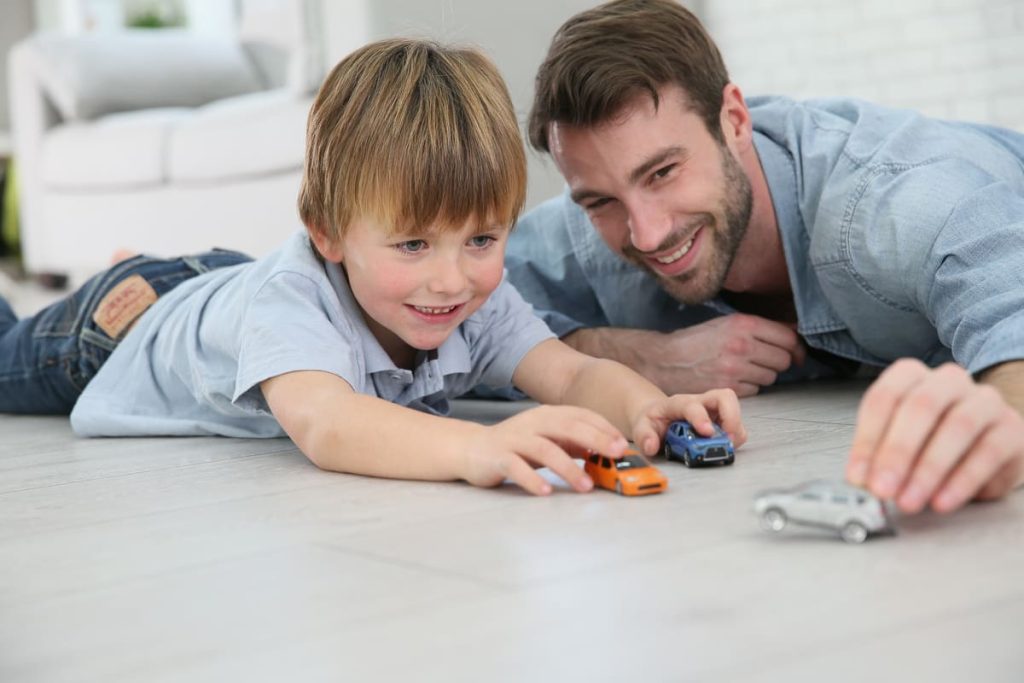The father’s traditional role in American society has changed significantly over the past hundreds of years. While the father’s role was rarely discussed in Colonial America, that all began to change in the 19th century following the Civil War. Economic growth and the Industrial Revolution led families’ primary sources of income to be earned outside the home as farm and family businesses decreased. The next major shift occurred following the women’s liberation movement and continues today.
Bringing in the Bacon
Several centuries ago, the father’s primary role was to convey essential morals and values to his family, often through a religious lens. Fathers were directly responsible for their child’s upbringing. Work was primarily home-based, whether tending the family farm or supporting the family business. Thus, the father played a direct role in the development of his children, and his success as a man was judged according to his children’s morals and values into adulthood.
With the emergence of more significant industry at the turn of the 20th century, the role of the father began to shift. With the invention of the automobile, men became more mobile, working as bankers, accountants, managers, doctors, lawyers, and more.
There was now a greater separation between work and home. Men became the primary breadwinners, while women stayed home and became the primary caregivers of the children. Successful fathers were those who could “bring in the bacon” rather than raise successful young men. The Great Depression and World War II further etched these roles into American society as men went from working outside the home for work to outside the house for war.
The Social Media Influence
Platforms like Facebook, Instagram, and Twitter have become virtual community centers where fathers can share experiences, seek advice, and find solidarity in their parenting journey. Blogs and vlogs dedicated to fatherhood abound, offering many perspectives on the challenges and joys of being a dad in today’s world.
These platforms are not just for sharing family milestones; they are spaces where fathers can engage in open dialogues about the complexities of parenting, breaking down stereotypes and fostering a more inclusive understanding of what it means to be a dad.
The Shifting Role of the Traditional American Housewife
The women’s liberation movement of the 1960s led to additional shifts in the father’s role inside the American family. Women began to pursue opportunities for increased education and work outside the home. Further, divorce rates doubled between 1950 and 1995 from 11 to 23 divorces per 1,000 married women. This led to children splitting time between homes, causing what it meant to be a “good” father to become further convoluted.
This period also led to increased sharing of familial responsibilities. The feminist movement advocated for a more nurturing and involved father figure rather than playing the role of the breadwinner and disciplinarian inside the home. Traditional gender roles were challenged, and fathers stepped up to fulfill household duties and provide more hands-on childcare while wives worked.
The American Father of Today
A disciplinarian or breadwinner in eras past, today’s “American Dad” takes on a different role in familial structures. Women and men earn about the same amount in 29% of U.S. marriages. Just over half of U.S. marriages report the male serving as the primary breadwinner in the home. This has created a shift in the father’s role in U.S. families.
Today’s father can be married or single, a stay-at-home dad, or externally employed. He may be gay or straight, or adoptive or a step-parent. In any circumstance, he is deemed more than capable of supporting his children’s physical and emotional development and growth. Today’s father takes a more holistic interest in the child’s development. He actively participates in daily routines and engages in emotional support. Many fathers prioritize quality time with their children and involve themselves in academic activities, extracurricular events, and their kids’ emotional well-being.
The Future of Fatherhood in the Digital Age
As we look to the future, it’s clear that technology and social media will continue to play a pivotal role in shaping the experiences and perceptions of fatherhood. From virtual reality that might offer new ways for dads to engage with their children to AI-driven parenting aids and online communities that provide support and camaraderie, the digital landscape is poised to further transform the contours of fatherhood.
Current Statistics
Today, 1 in 5 fathers are stay-at-home dads. Dads now represent 18% of stay-at-home parents, up from 11% in 1989. Today’s fathers also claim parenting as a key aspect of their identities. 85% of fathers with children under 18 claim that parenting is the most important (24%) or one of their identity’s most important (61%) aspects. About 80% of dads state that parenting is enjoyable and rewarding most of the time.
Most of the time that dads spend with their children is spent caring for or playing with them. Dads also place a high priority on their children growing up to be ethical, honest, and hard-working adults and play a key role in the development of these attributes.
In essence, fathers of all dynamics embrace a more comprehensive definition of parenting in the modern age. Shared parenting responsibilities and co-parenting arrangements are more common and reflect a more equitable distribution of caregiving responsibilities. This evolution reflects a broader societal recognition of the importance of fathers in the social, emotional, and intellectual development of their children.
The role of the American father has shifted from a predominant provider to a more inclusive and nurturing character within the home. Today’s dads actively shape their children’s lives, contributing to a more balanced and supportive family dynamic.






